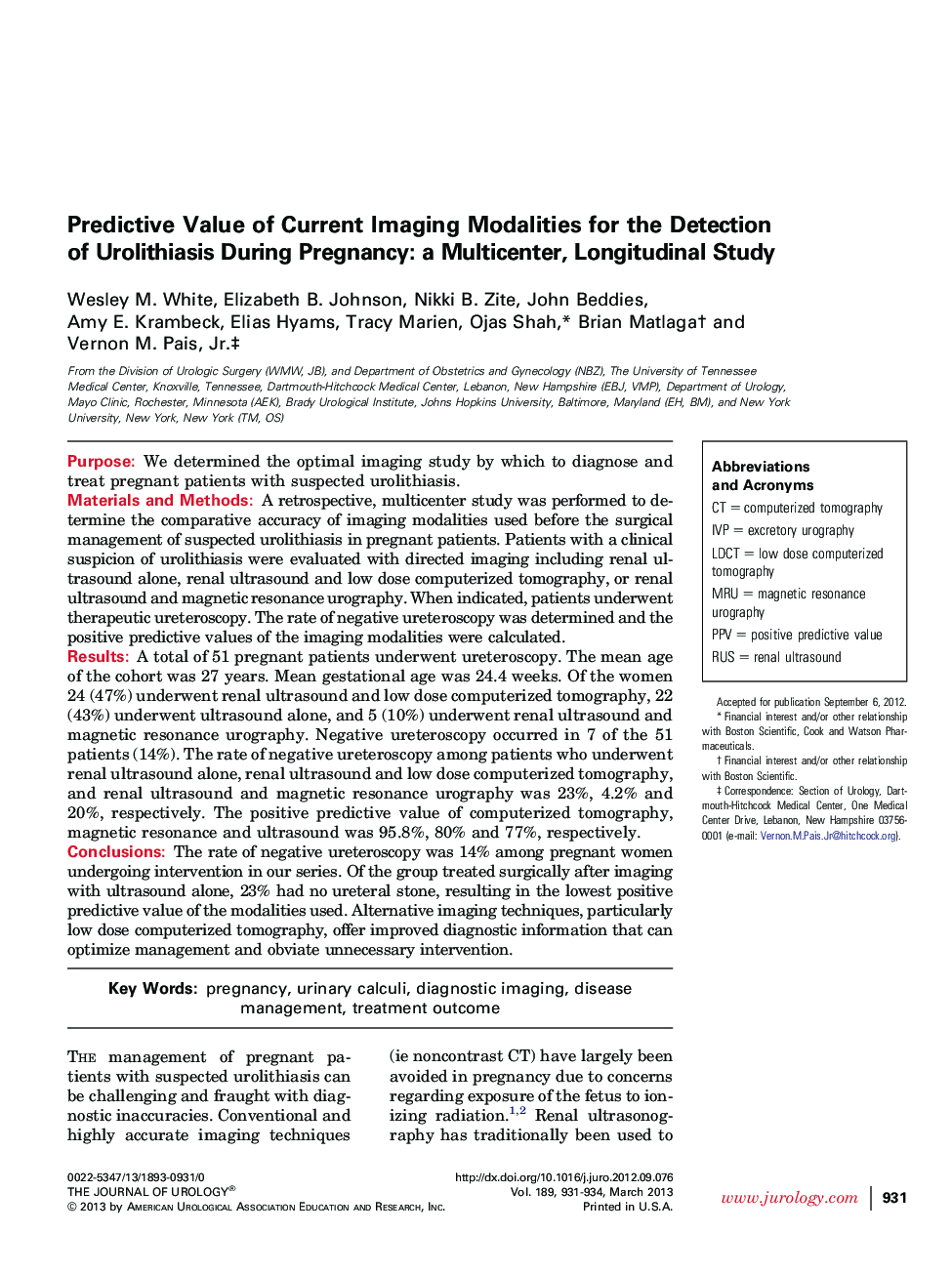| Article ID | Journal | Published Year | Pages | File Type |
|---|---|---|---|---|
| 3864929 | The Journal of Urology | 2013 | 4 Pages |
PurposeWe determined the optimal imaging study by which to diagnose and treat pregnant patients with suspected urolithiasis.Materials and MethodsA retrospective, multicenter study was performed to determine the comparative accuracy of imaging modalities used before the surgical management of suspected urolithiasis in pregnant patients. Patients with a clinical suspicion of urolithiasis were evaluated with directed imaging including renal ultrasound alone, renal ultrasound and low dose computerized tomography, or renal ultrasound and magnetic resonance urography. When indicated, patients underwent therapeutic ureteroscopy. The rate of negative ureteroscopy was determined and the positive predictive values of the imaging modalities were calculated.ResultsA total of 51 pregnant patients underwent ureteroscopy. The mean age of the cohort was 27 years. Mean gestational age was 24.4 weeks. Of the women 24 (47%) underwent renal ultrasound and low dose computerized tomography, 22 (43%) underwent ultrasound alone, and 5 (10%) underwent renal ultrasound and magnetic resonance urography. Negative ureteroscopy occurred in 7 of the 51 patients (14%). The rate of negative ureteroscopy among patients who underwent renal ultrasound alone, renal ultrasound and low dose computerized tomography, and renal ultrasound and magnetic resonance urography was 23%, 4.2% and 20%, respectively. The positive predictive value of computerized tomography, magnetic resonance and ultrasound was 95.8%, 80% and 77%, respectively.ConclusionsThe rate of negative ureteroscopy was 14% among pregnant women undergoing intervention in our series. Of the group treated surgically after imaging with ultrasound alone, 23% had no ureteral stone, resulting in the lowest positive predictive value of the modalities used. Alternative imaging techniques, particularly low dose computerized tomography, offer improved diagnostic information that can optimize management and obviate unnecessary intervention.
